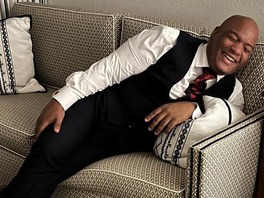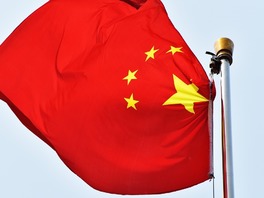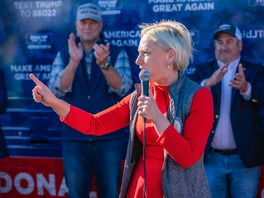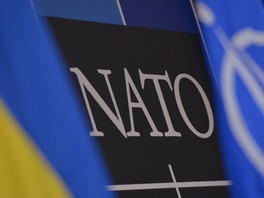On Sunday, August 22, German Chancellor Angela Merkel paid a working visit to Ukraine. Her visit began at the Mariinsky Palace in Kyiv.
The Head of Ukraine greeted the guest at the entrance of the palace. Delegations were introduced. After the talks between Volodymyr Zelenskyy and Angela Merkel in a vis-a-vis format, interlocutors held a meeting with media representatives and continued their negotiations in an expanded format.
The key issues on the top of the meeting agenda were the peace plan to resolve the situation in Donbas and energy security.
Considering the issue of a peaceful settlement in Donbas, Ukraine is counting on Germany, which it considers a key ally in Europe. This was emphasized by the President of Ukraine Volodymyr Zelenskyy in his statement for the media following the meeting with Merkel.
"It is important that Ukraine, Germany and France have a consolidated position within the Normandy Four on the peace plan, which should be based on clusters. The Paris agenda, which must be implemented, remains relevant. We strive for a constant and sustainable ceasefire, exchange of detainees, opening of checkpoints by the temporarily occupied territories and long-awaited access to these territories for representatives of the International Committee of the Red Cross," the President said.
Volodymyr Zelenskyy expressed his conviction that as long as there is no progress in a peaceful settlement in Donbas, the pressure on Russia must be maintained. According to him, the Ukrainian party wants to see active efforts in this regard by its partners.
For her part, Angela Merkel stated that the Normandy negotiation process is not moving as actively as we would like. In particular, the meetings of the Trilateral Contact Group do not take place in the desired mode, and the checkpoints on the touchline have not started operating.
"I would also like to hold another summit at the level of heads of state, at the highest political level, to invite the presidents of Ukraine, France and Russia. And if we can develop a good agenda, I think it's possible. President Zelenskyy is ready to support us here," she said.
Angela Merkel noted that Russia is a party to the conflict in Donbas. The Chancellor supported Ukraine's position on refusing to hold direct talks with separatists’ representatives.
Angela Merkel also stressed that the Crimea Platform summit is an important event. She stated that Germany considers the temporary occupation of Crimea by Russia a violation of international law, and this position remains unchanged.
"My visit takes place on the eve of the Crimea Platform summit so that I have the opportunity to discuss the issues of the Minsk agreements and the Normandy format. This is a farewell bilateral visit. Probably, I will not come as the Federal Chancellor anymore," she explained.
Regarding the issue of energy security, Zelenskyy announce the initiation of consultations with the European Commission and the German government to develop a mechanism that will ensure the energy security of the Ukrainian state.
According to Zelensky, it is important for Ukraine to have a clear international legal mechanism that will guarantee security and become an effective safeguard against Russian military aggression. He noted that even today, when Nord Stream 2 has not yet been completed, it is clear who controls gas prices in Europe and their growth.
"That's why I don't think it's just an economic issue. And the completion of Nord Stream 2, and then its implementation and use will lead to great risks. I believe that this will benefit the Russian Federation only," Volodymyr Zelenskyy stressed.
For her part, Federal Chancellor Angela Merkel supported the need to continue cooperation between Ukraine and Germany in the field of energy. She said that Federal Minister for Economic Affairs and Energy Peter Altmaier would arrive in Ukraine tomorrow to take part in important talks.
Angela Merkel noted that Germany wants to extend the agreement on gas transit through Ukraine after 2024 as soon as possible, which she emphasized during a meeting with Russian President Vladimir Putin.
"After 2024, we will export gas from Russia to Europe, and it is important that Ukraine remains a transit country and that this agreement is extended," she said.
The Federal Chancellor also stressed that Germany and the United States share the view that gas cannot be used as a weapon. According to her, Nord Stream 2 will operate within the European legal framework, in particular the Third Energy Package, and if Russia tries to use this pipeline as a weapon, the issue of sanctions will be raised.
Notably, in pursuance of the agreements between President of Ukraine Volodymyr Zelenskyy and Federal Chancellor of Germany Angela Merkel, a memorandum of cooperation in the hydrogen economy sector was signed between Naftogaz of Ukraine and the German energy company RWE (Rheinisch-Westfälisches Elektrizitätswerk). This document opens up prospects for the export of "green" hydrogen to the European market, in particular to Germany. Both the existing pipeline network and alternative means, in particular ammonia transport vessels, can be used for this purpose. The pilot project envisages delivery by ships in the form of "green" ammonia.
There are also opportunities for commercial sales of Ukrainian "green" hydrogen in European markets, with a focus on existing markets. In addition, the memorandum provides for opportunities for the development of renewable energy projects on the shelf and coast.






